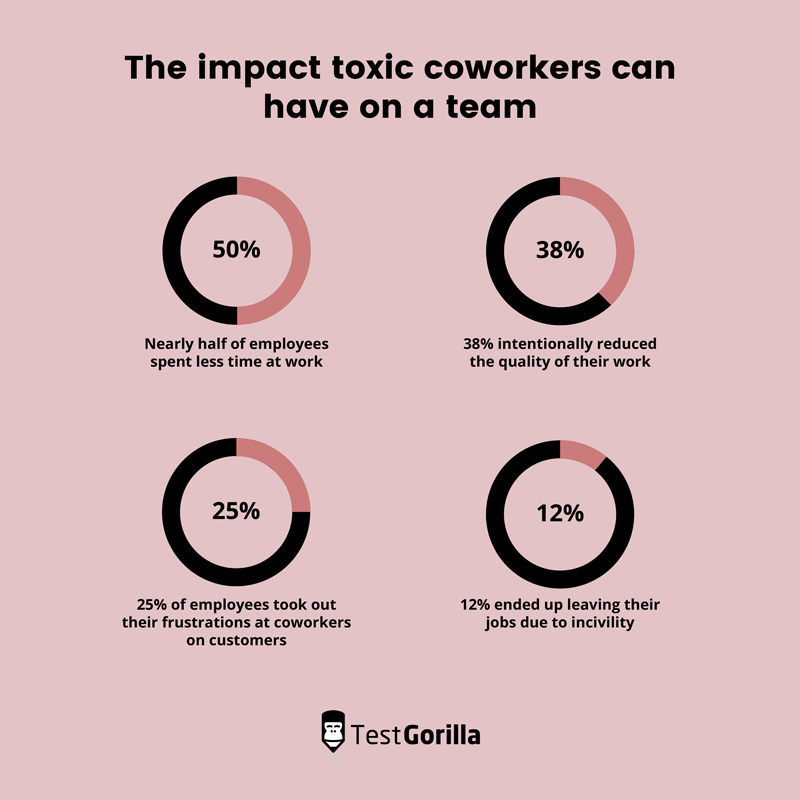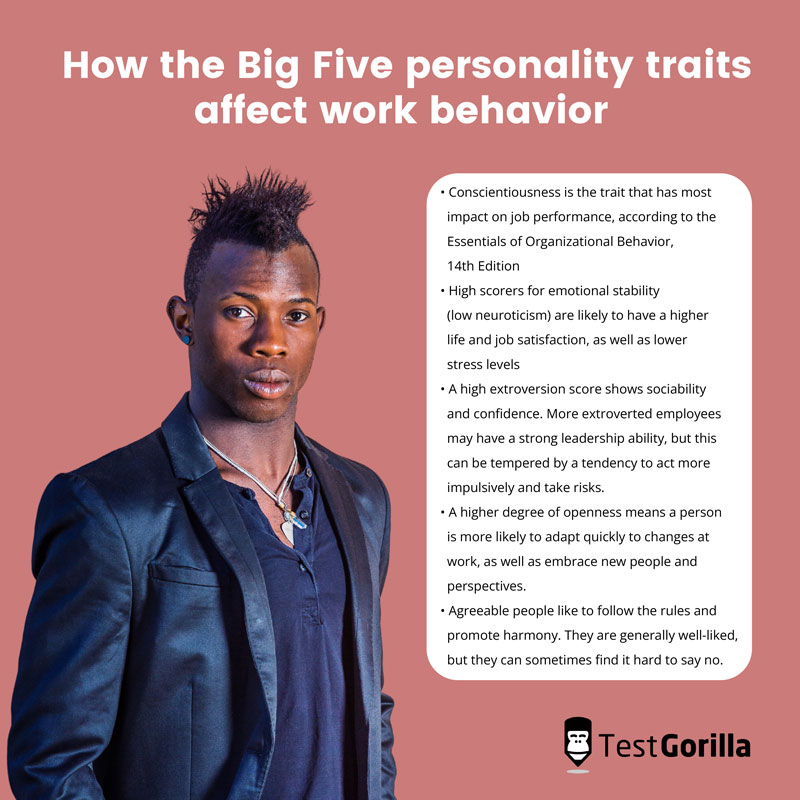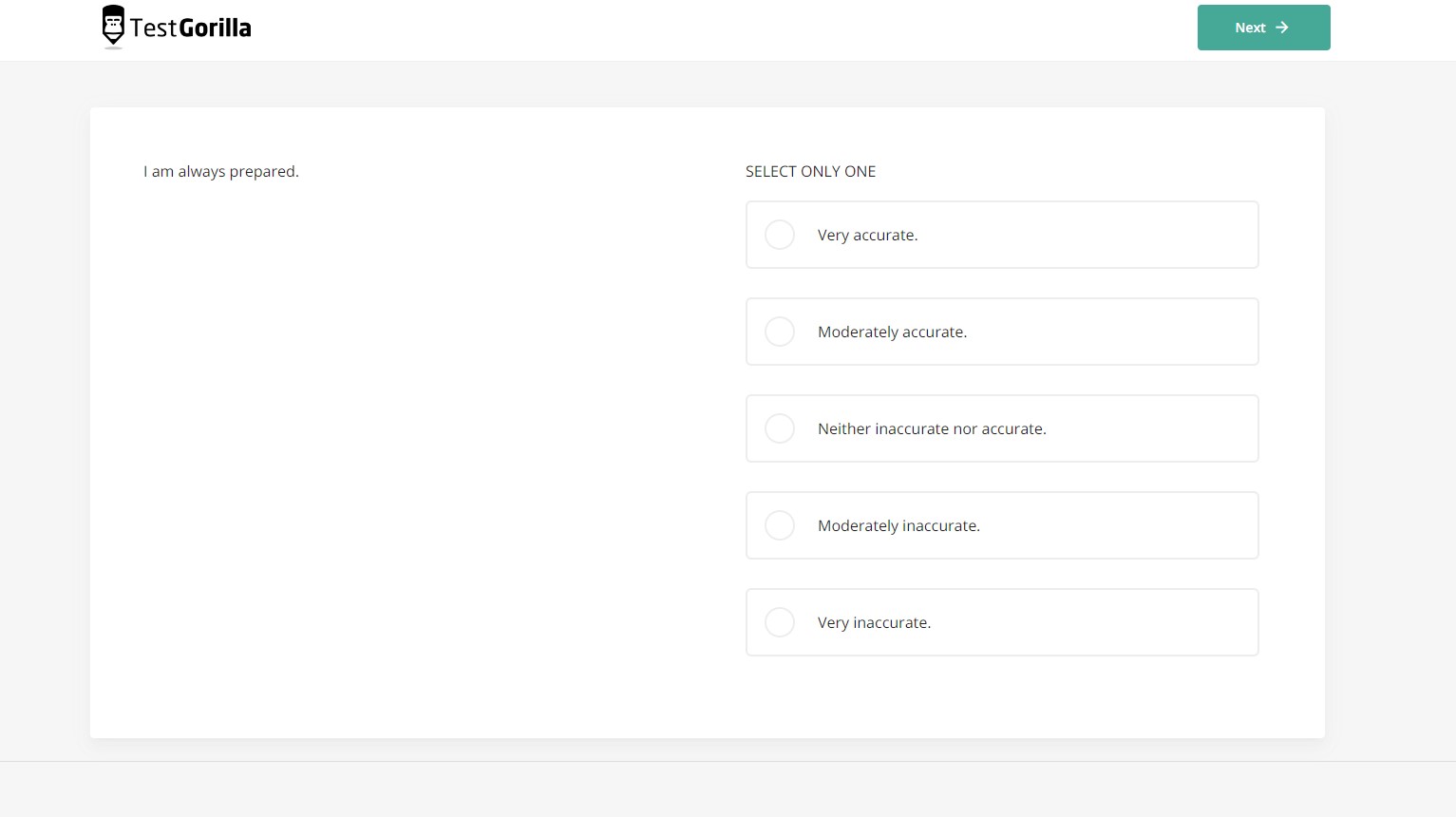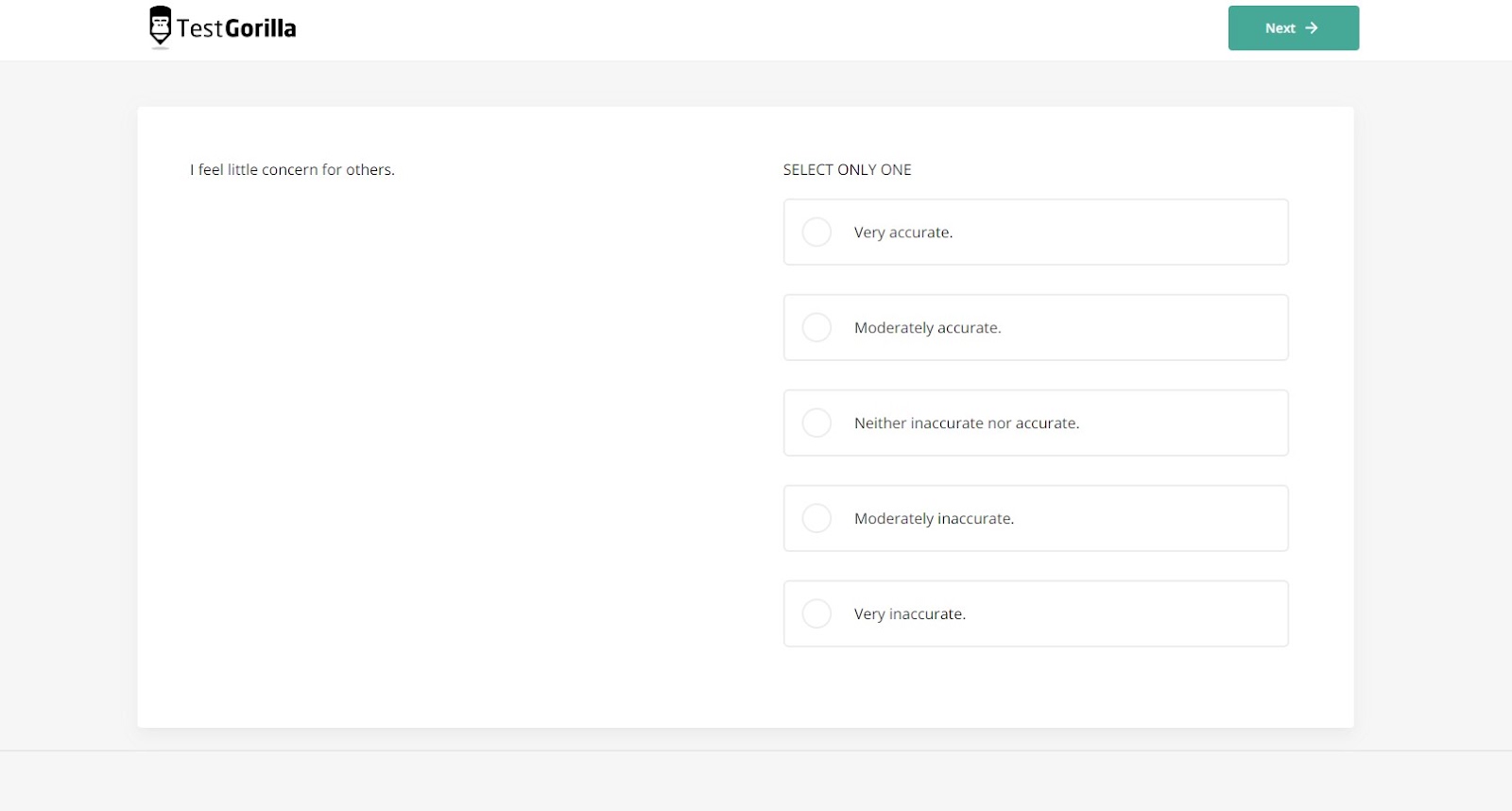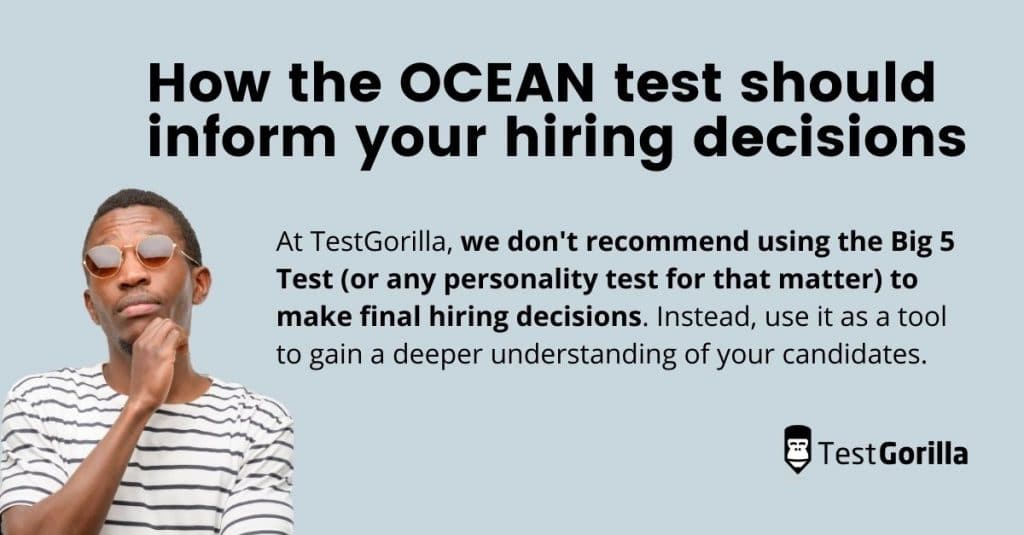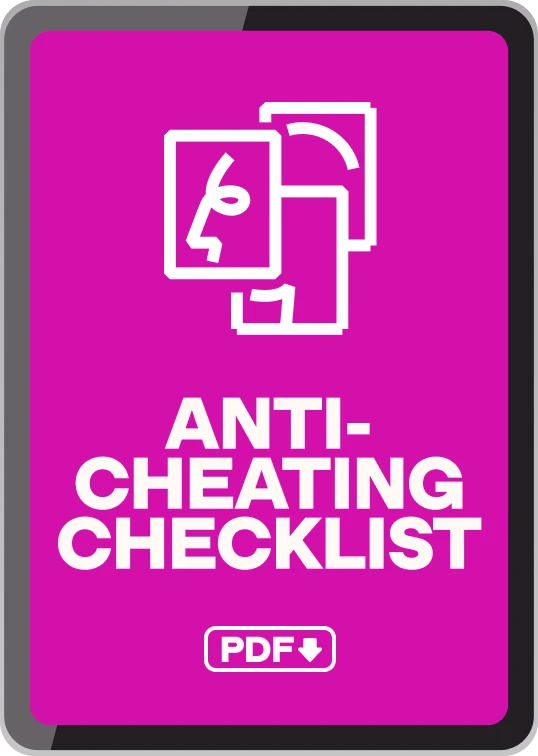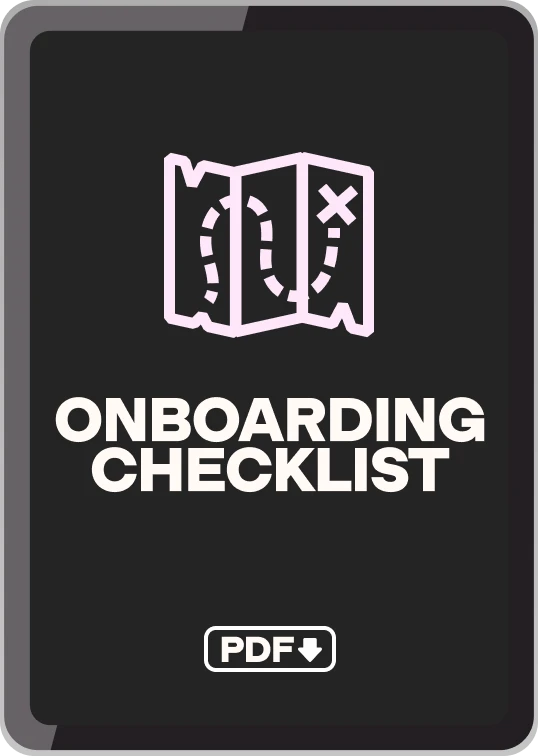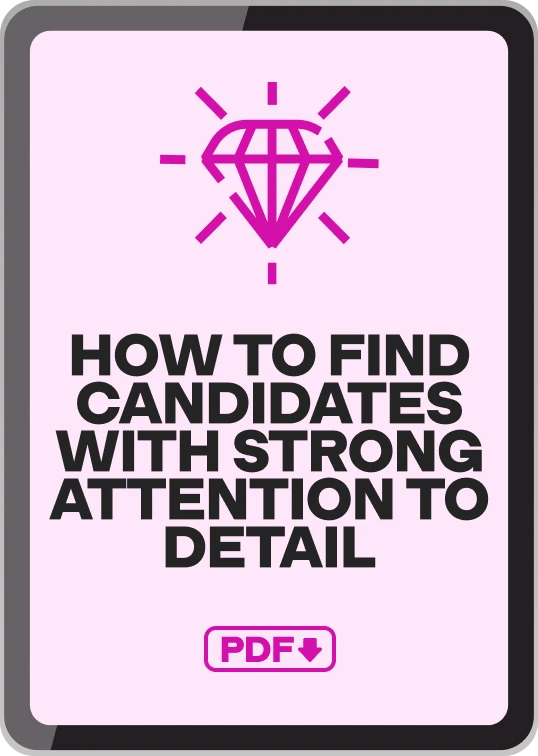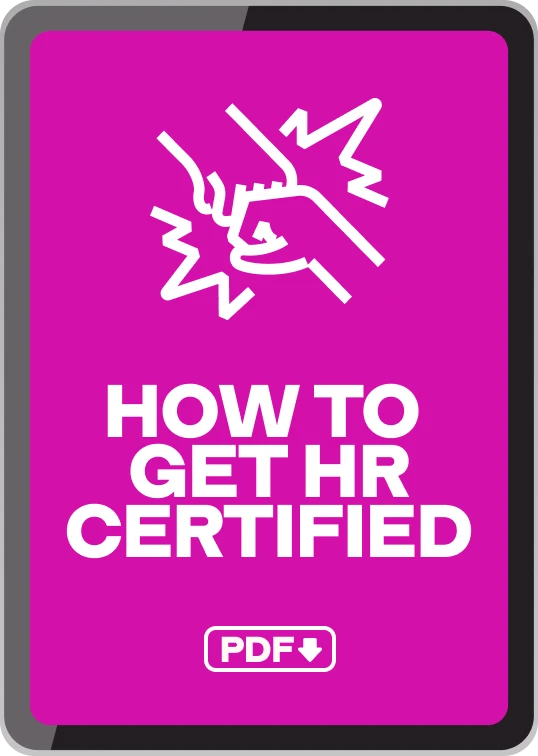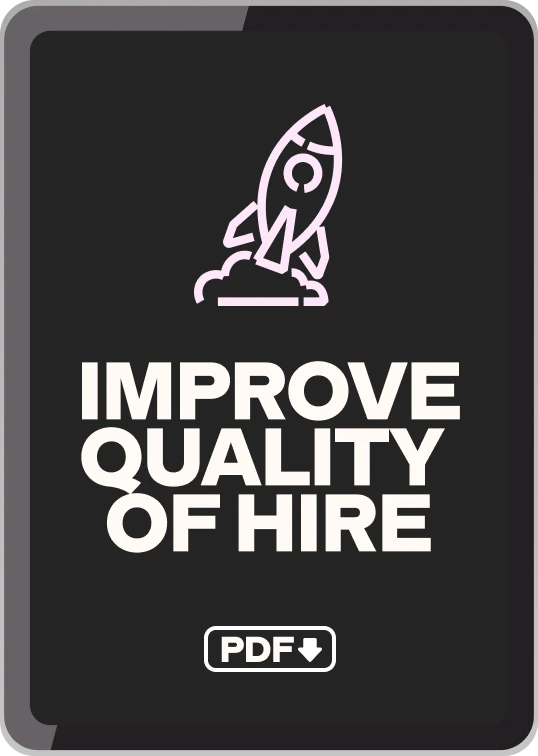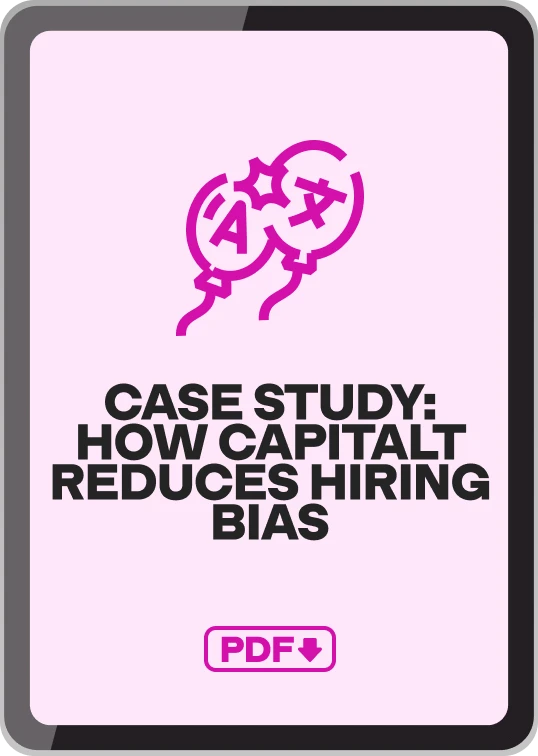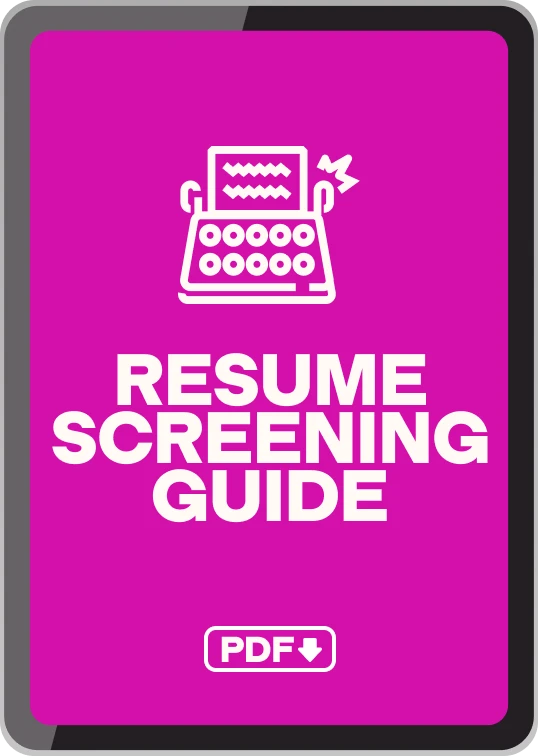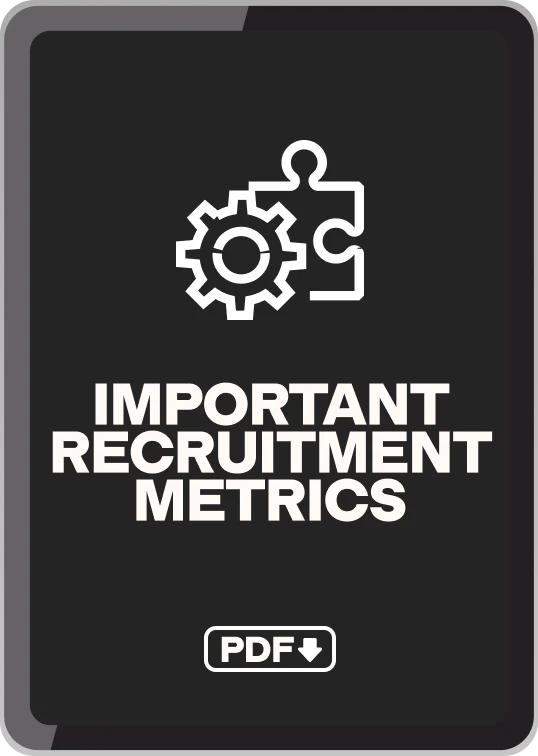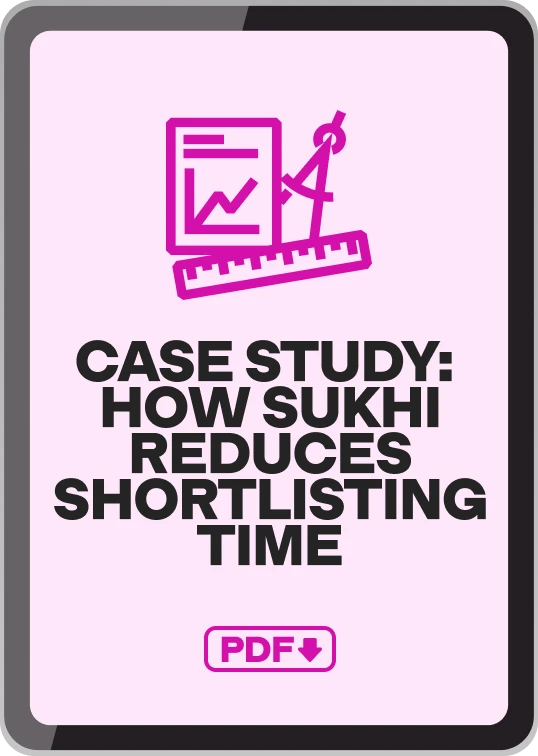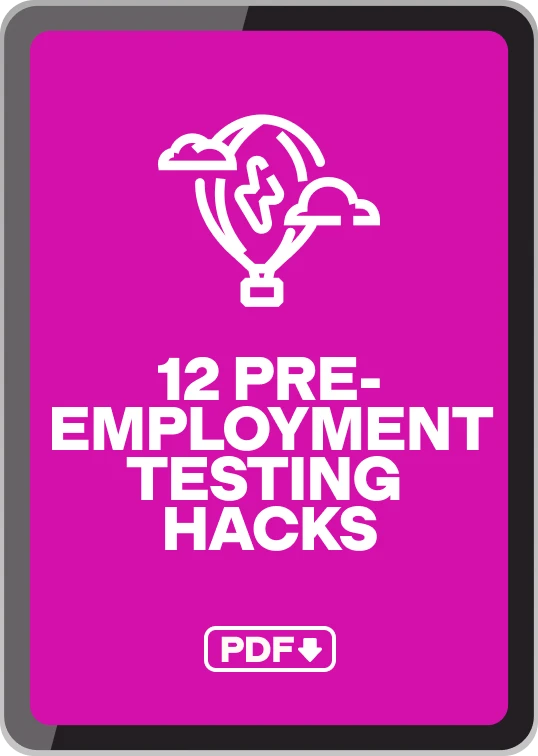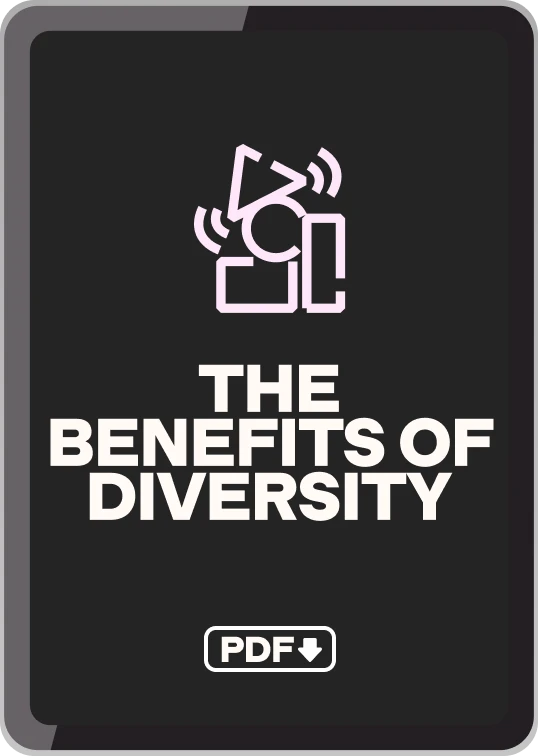The Big 5 personality traits: How they can influence your hiring
You may think that personality doesn’t matter much in the workplace as long as someone has the role-related skills to do the job well. However, personality matters much more than it would seem at first glance.
Personality affects work behaviors and performance, and can ultimately make a difference to career success. It can also lead to mistakenly hiring someone who seems like a good fit for your organization (perhaps they interviewed well and have all the technical skills required), but in reality they cause a lot of problems and disruption once they are in the role due to their personality traits.
There is no such thing as the “perfect” candidate, but there are ways to minimize the potential of making a costly hiring decision, and that’s where an understanding of personality traits and personality testing comes in.
We’re going to take a look at the Big Five personality traits and how they can help you discover more about how your candidates see themselves and deal with the world around them. We’re also going to show you how TestGorilla’s Big Five (OCEAN) test can be used as part of a wider skills assessment for potential hires.
First, though, let’s focus on what personality means, how it can affect employee behavior and the Big Five personality traits.
Table of contents
What are personality traits?
We all have a personality, but defining what it is can be difficult. After all, it’s not like we can make big changes to it (although a recent study published in the American Psychological Association journal shows that some personality traits can be modified with persistent intervention), even if we want to.
Personality is the sum of how an individual thinks, feels, and behaves in their everyday life. It shows how we react to problems, people, and situations. Because the average working environment consists of all of those things, it makes sense to evaluate how a candidate copes with them by giving them an OCEAN test.
Why does personality matter in the workplace?
Job-related skills are just one part of what makes someone successful in their role. Soft skills are crucial too, and some of these (such as communication style) overlap into wider personality traits.
Characteristics, behavior, and personality can be useful in discovering whether a candidate is a good match for a specific job. Often, the personality traits that are the key to success depend a lot on the role itself. For example, if the job requires constant contact with people, it makes more sense to choose someone who enjoys interacting with others than someone who works better alone.
On the flip side, if the job requires a lot of lone work, an extroverted people-loving personality may struggle to deal with the isolation and become unhappy in the role.
Our personality traits also cover areas like conscientiousness, decision-making, motivation, risk-taking, and how empathetic we are to others. These traits are important in the workplace; not just for job performance reasons, but also for fostering good relationships between coworkers.
Teams can suffer when a bad personality fit joins them. Productivity and motivation may drop due to the attitude of the new hire. Offensive behavior, unnecessary drama, and communication breakdowns rise, and before you know it your staff may find themselves infected with the negativity the new employee brings. They may even start to look for another job.
Your formerly happy and productive team is now falling apart due to one unsuitable personality joining them, and that situation also has an impact on your organization’s bottom line.
Using the OCEAN test can provide you with the data and insights you need to spot potential red flags and dig deeper into candidates’ personality traits during an interview.
What are the Big Five personality traits?
While there are different workplace personality tests available, one of the most popular is the OCEAN test which has been developed over three decades. It’s based on the Five-Factor theory of personality – also known as the Big Five personality traits.
These are the five overarching factors that shape personality and make up the OCEAN test acronym (sometimes you will see it called the CANOE test on the internet, but it’s the same test except the letters are arranged into a different sequence):
Openness: This is the degree to which a person is open to new ideas and experiences, and covers flexibility, curiosity, and imagination. Those who score highly on this find it easy to adapt to new working practices and ideas.
Conscientiousness: This evaluates the extent to which someone is organized, hard-working, and gets the job done right. Top scorers are driven to do a good job, and are meticulous, and professional.
Extroversion: Measures how much someone is outgoing, social, confident, and assertive. While extroversion seems to be the favored benchmark in workplaces, it’s not always true that a more extroverted person will fit better in a role than a more introverted person.
Agreeableness: Evaluates the degree to which someone is co-operative, empathetic, trusting, and respectful to others. Having a good amount of agreeableness helps foster teamwork and a calm workplace.
Neuroticism (also known as Emotional Stability): This scale measures how easily stressed or anxious a person becomes, and how they deal with problems. Some jobs come with more stress and problems than others, so discovering if a candidate can keep calm and carry on, or becomes anxious and emotional is crucial for high-pressure jobs.
One thing to bear in mind is that each trait in the OCEAN test is judged on a spectrum with extremes at both ends, and most people will fall somewhere in between. For example, the Extroversion trait has Introversion at the opposite end of the scale, yet very few people would actually be extreme extroverts or extreme introverts.
When reading a Big 5 Personality test score interpretation, it’s important to remember that the traits results are independent of each other. This means a person can score high on one trait, and low or middle on others.
How the OCEAN test can help you to screen candidates
A personality evaluation like the OCEAN test can be a valuable tool in finding the candidates who will fit more easily in the role. Although personality tests should never be used to replace the decision-making process, they can help recruiters and hiring managers to create intentional interview questions to gain a better understanding of candidates and how they approach work.
By doing a personality test before the interview shortlist is drawn up, you reduce the chance of hiring bias far more than if you evaluated personality during an interview.
For example, an interviewer may have an unconscious bias against introverts (or extroverts), but they may be an excellent choice for a specific role. The OCEAN test will empower you with data to help make an informed decision on how well applicants will align with the job role and other team members.
The TestGorilla Big Five (OCEAN) test
Our Big 5 (OCEAN) test differs from the Enneagram and the 16 personalities test, as these two tests use forced-choice questions. The OCEAN test, however, asks candidates to rate the statement from very accurate to very inaccurate. Below are a couple of sample questions from our Big 5 (OCEAN) test:
The question from the OCEAN test above enables the candidate to self-evaluate how accurate their state of preparation is, and the one below aims to measure how much concern the applicant has for others.
The OCEAN test can be used for all job roles, and can also be useful for testing existing employees for you and them to discover more about their personality traits and how these feed into the work environment.
Our tests are designed to be used as part of a larger pre-employment skills assessment, which should be taken before candidates have reached the interview stage. To find out more about the reasons behind this, you may find our blog post on why assessments should be done at the start of the hiring process helpful.
How do assessments work?
TestGorilla enables you to create a skills assessment by adding up to five individual tests to make one full assessment. Candidates take all the tests in one go, and you receive the results that show you the top performers on each test. For a more in-depth look at interpreting test results, our help pages on analyzing results are a mine of information to help you get the most out of tests and assessments.
To build a strong assessment, you should add several different types of tests to suit the job role and to check for other soft skills or cognitive abilities. The OCEAN test would be one of these, so you could add another four to make a full assessment. These could be technical role-related tests, cognitive tests, or an evaluation such as our Culture Add test which is fully customizable and enables you to see how well candidates align with your organization’s specific culture and values.
Our pre-employment assessments at TestGorilla combine three key factors:
Premade tests: choose up to five tests created by subject-matter experts to build an assessment that will give you a well-rounded review of the candidates. These tests can be on job-related skills, cognitive abilities, language skills, situational judgment, culture and personality, or programming skills. To get a bigger idea of the huge range of tests we provide, take a look at our test library.
Custom questions: These are optional and enable you to add up to 10 personalized questions to your assessment (multiple-choice, open-ended, or media-led). Tailoring your tests this way gives you the opportunity to ask questions specific to the job you’re hiring for.
Candidate performance score: evaluate which candidates performed better than others based on their answers to the questions provided.
By doing it this way, you can skip the CV screening stage and go straight to the interviews knowing the top-scoring candidates have already proved their skills through the tests. Assessments are also more predictive of success than resume screening software.
Skills-based testing is the future of recruitment
Having extra insight into how your candidates approach life and work by using the OCEAN test can be beneficial when it comes to hiring. If you are interested in learning more about the role personality plays at work, then this article discussing innate vs acquired personality traits in the workplace, or this one on how personality testing can help your employees may be useful to you.
The true cost of bad hires is shocking, and you need to use every method you can to reduce the risk of taking one on. Using the OCEAN test before interviewing gives you the tools to shape your questions for each candidate, and gives you more insight into whether their personality type will do well within a role.
Hopefully, we’ve given you some helpful information about the OCEAN test and how it can be used as an effective recruitment tool when taken as part of a skills assessment.
What are the next steps?
Sign up for a free account at TestGorilla and start building your assessment around the OCEAN test, or check out our pricing page to find the plan that works best for you.
Want to know more? Book a free live 30-minute demo with our sales team, who will be happy to answer any questions you have.
Related posts
You've scrolled this far
Why not try TestGorilla for free, and see what happens when you put skills first.
Latest posts
The best advice on pre-employment testing, in your inbox.
No spam. Unsubscribe at any time.

Hire the best. No bias. No stress.
Our screening tests identify the best candidates and make your hiring decisions faster, easier, and bias-free.
Free resources
This checklist covers key features you should look for when choosing a skills testing platform
This resource will help you develop an onboarding checklist for new hires.
How to assess your candidates' attention to detail.
Learn how to get human resources certified through HRCI or SHRM.
Learn how you can improve the level of talent at your company.
Learn how CapitalT reduced hiring bias with online skills assessments.
Learn how to make the resume process more efficient and more effective.
Improve your hiring strategy with these 7 critical recruitment metrics.
Learn how Sukhi decreased time spent reviewing resumes by 83%!
Hire more efficiently with these hacks that 99% of recruiters aren't using.
Make a business case for diversity and inclusion initiatives with this data.

